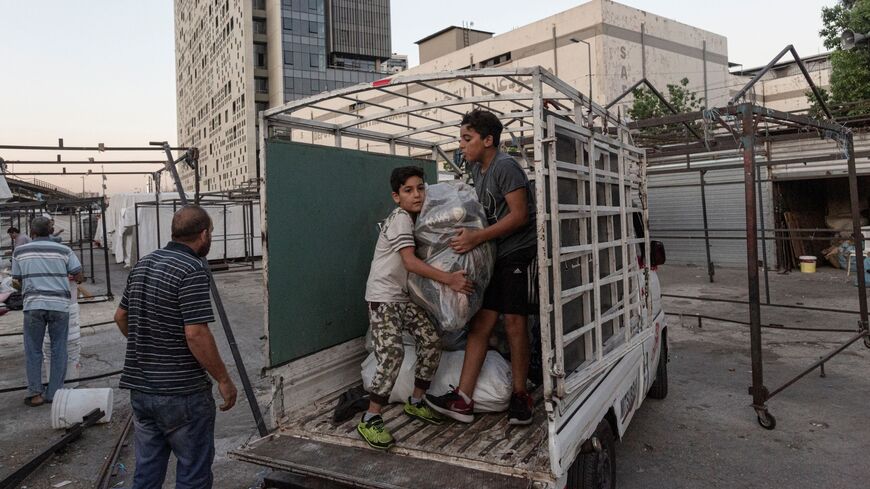
by al-monitor.com — An increasing number of children in Lebanon are not getting enough food as a result of the economic crisis, the United Nations reported today. The UN’s organization for children UNICEF conducted surveys in Lebanon in April and October of this year. In October, 53.4% of families reported that at least one of their children skipped a meal that month because there was not enough food in the home. The same figure in April was 36.7%. The percentage of respondents who had to sell household items also rose from 33% to 40.8% from April to October. An increasing number of families are also borrowing money to buy food, or buying food on credit, according to a UNICEF report.
The Lebanese economic crisis began in October of 2019. Since then, the Lebanese pound has lost more than 90% of its value, and the prices of fuel, food and other essentials have skyrocketed amid shortages and an end to government subsidies. The government has so far been unable to alleviate the suffering, and the Beirut port explosion in August 2020 made things worse. There are also concerns of a return to communal violence in the country following a deadly shooting at a Hezbollah protest last month. The number of Lebanese and Syrians in the country living in poverty is staggering. Nearly eight out of 10 Lebanese live in poverty, and almost nine out of 10 Syrian refugees in Lebanon live in “extreme poverty,” UNICEF said in its press release today. Lebanon hosts more than one million Syrian refugees. Another indication of the bleak economy is that food poisoning is increasing due to poor refrigeration resulting from hours-long electricity cuts. UNICEF is not alone in its assessment. The London-based humanitarian organization Save the Children reported in July that nearly one million people in Beirut were struggling to buy food, among other necessities.



